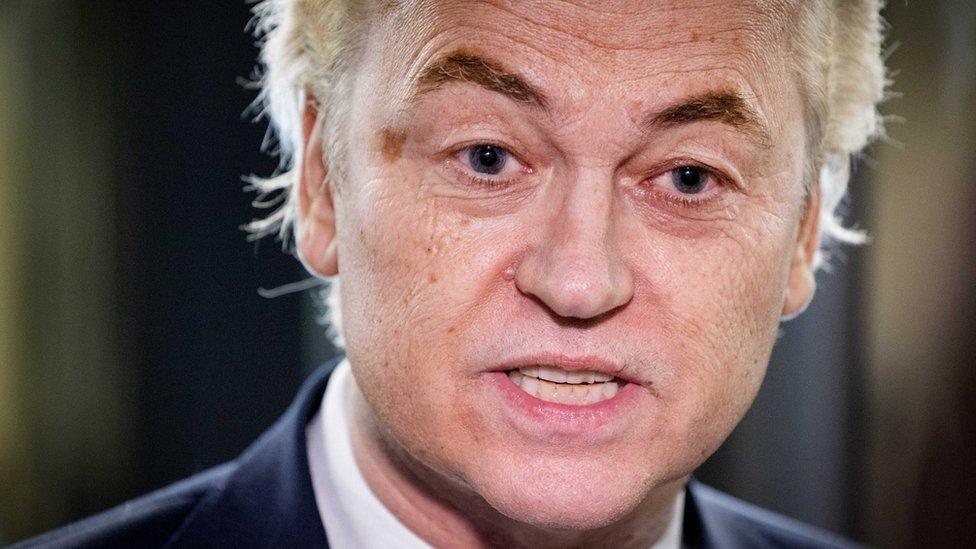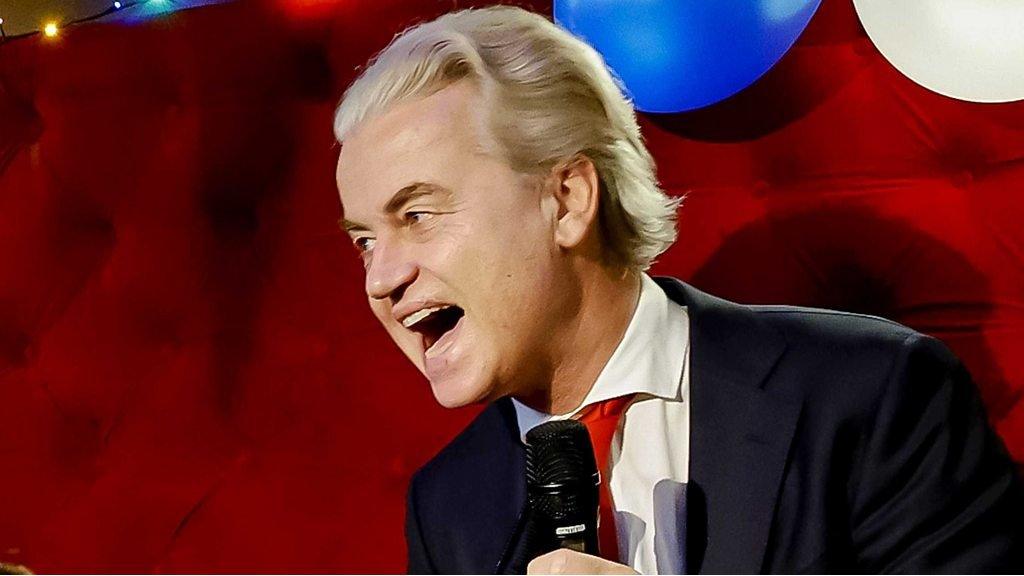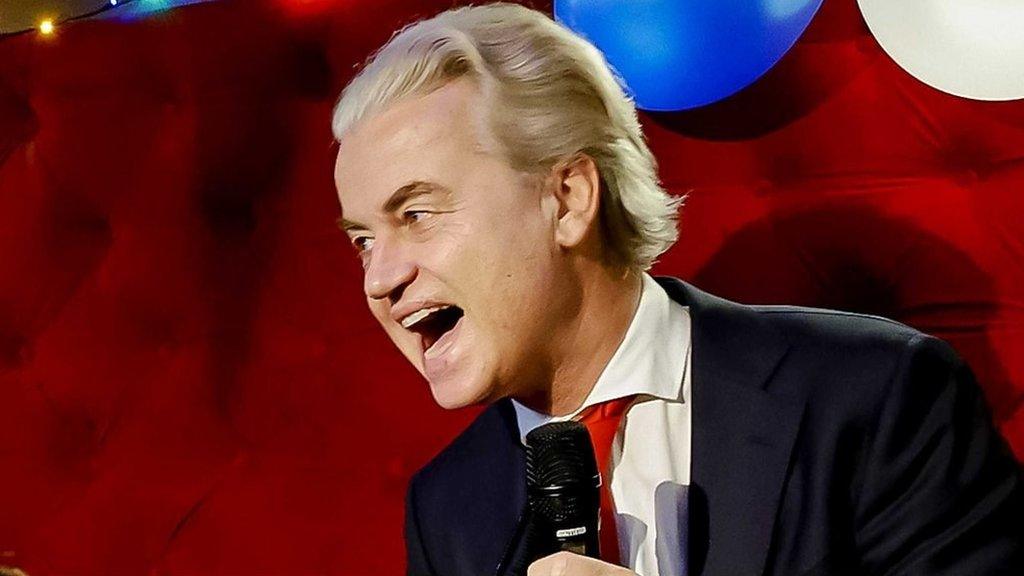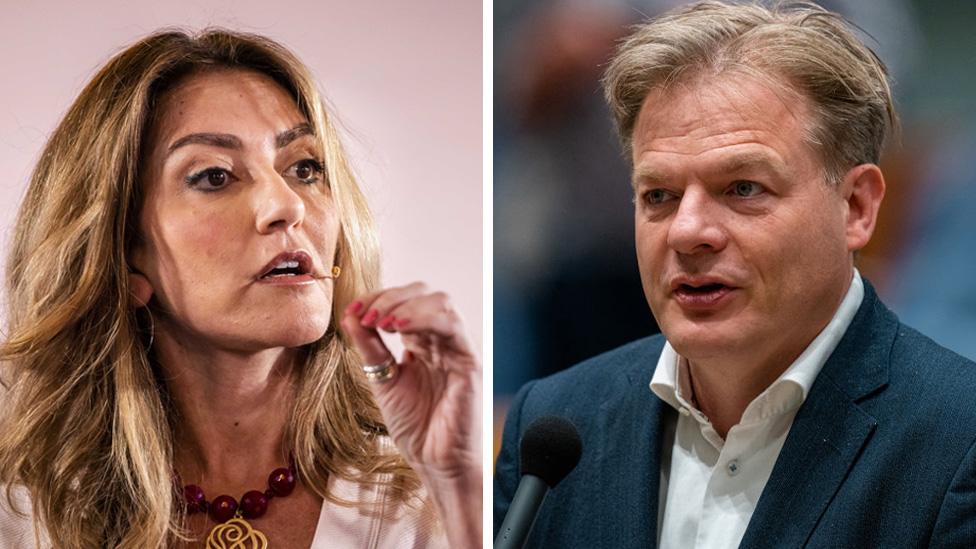Dutch anti-Islam populist Geert Wilders abandons PM bid
- Published

Geert Wilders' victory last year shook Dutch politics, sending a shock across Europe
Dutch anti-Islam populist leader Geert Wilders has abandoned his bid to become prime minister, despite his party's dramatic victory in the 2023 elections.
"I can only become prime minister if ALL parties in the coalition support it. That was not the case," he wrote on X, formerly known as Twitter.
His Freedom Party (PVV) won the most votes last year, but needed support of other parties to form a coalition.
Talks continue with three other parties on the shape of a new government.
The negotiator leading the latest round of talks, which concluded on Tuesday, is due to share his report with parliament on Thursday.
"I would like a right-wing cabinet. Less asylum and immigration. Dutch people first. The love for my country and voters is great and more important than my own position," Mr Wilders wrote in his post on Wednesday evening.
Mr Wilders, 60, has spent months in talks with the centre-right liberal VVD, New Social Contract (NSC) and BBB farmers' parties to try to form a coalition government.
The leaders of those three insisted this week that the only way they would be willing to move forward was if all four party leaders agreed not to take a role in the government, according to Dutch public broadcaster NOS.
It was not immediately clear if a compromise figure for the prime minister's post had emerged.
A parliamentary debate on the issue is also expected on Thursday when the man conducting the talks between the four parties, Kim Putters, presents his findings.
He is expected to announce that the parties are prepared to form a minority government with an "extra-parliamentary cabinet", which would mean that none of the four party leaders would take up ministerial posts, but remain as MPs.
Exactly who would be prime minister and who would serve in the cabinet is unclear. After 14 years under Mark Rutte, the next Dutch government would have more of a figurehead as prime minister, while ministers could be drawn from outside politics as well as within.
That kind of cabinet is favoured by New Social Contract leader Pieter Omtzigt and liberal VVD leader Dilan Yesilgöz. It would be handed a concise list of policies to stick to, giving broader powers to parliament, although exactly how it would work is still vague.
The last time a prime minister did not come from the largest party in the Dutch government was in the 1980s. And the last time a Dutch prime minister was not the leader of one of the governing parties was in 1918, according to Dutch media.
The PVV's victory last year not only shook Dutch politics, but also had repercussions across Europe as the Netherlands is one of the founding members of what is now the European Union.
Related topics
- Published22 November 2023

- Published23 November 2023

- Published21 November 2023
